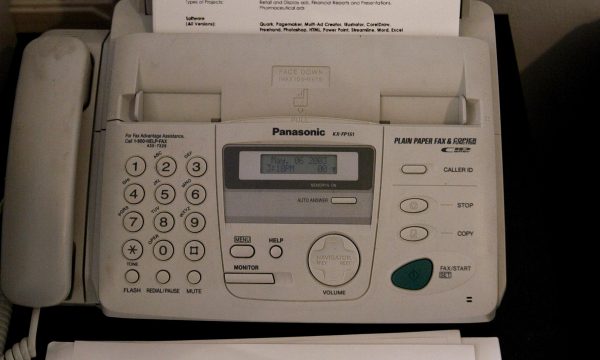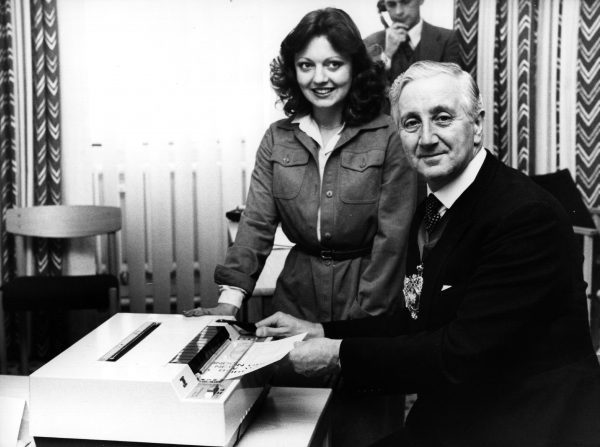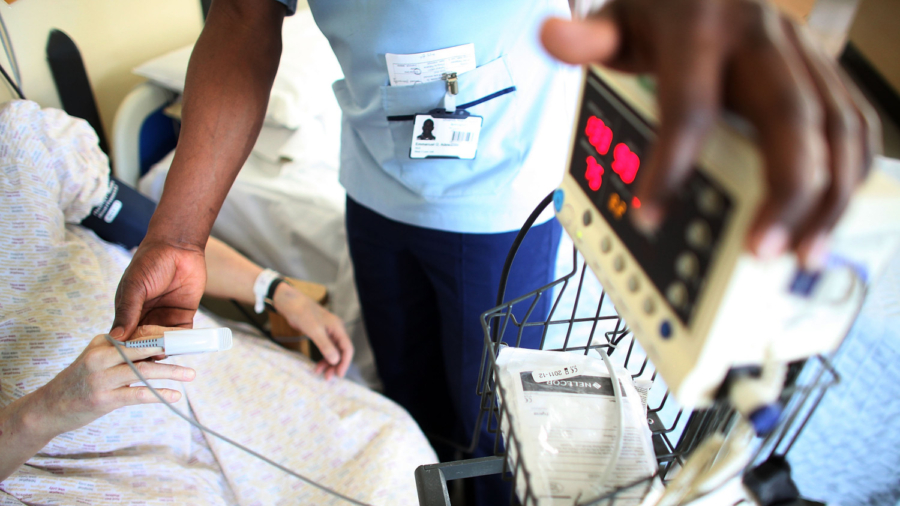LONDON—The UK’s National Health Service is the world’s largest purchaser of fax machines, with a “farcical” reliance on outdated technology, medical experts have said.
The report from the Royal College of Surgeons (RCS) says that the NHS has about 9,000 fax machines that doctors use to send patient information. One hospital trust area in north east England has over 600 of the old-fashioned devices.
Despite advances in communications technology, doctors are officially required to use fax machines or pagers to communicate, which other organizations phased out in the early 2000s.
However, a recent survey by the British Medical Journal found that about 90 percent of doctors use instant messaging apps like WhatsApp to contact each other.

Richard Kerr, chair of the Royal College’s commission into the future of surgery, said in a statement: “The advances we are beginning to see in the use of artificial intelligence and imaging for healthcare, as well as robot-assisted surgery, promise exciting benefits for NHS patients.
“Yet, alongside all of this innovation, NHS hospital trusts remain stubbornly attached to using archaic fax machines for a significant proportion of their communications.
“This is ludicrous.”
The report relied on Freedom of Information requests prompted by a 2017 report from DeepMind Health that named the NHS as the world’s largest purchaser of fax machines.
The RCS found that Newcastle upon Tyne NHS Foundation Trust owns an astonishing 603 fax machines, while the two London-based trusts, Barts Health NHS Trust and Imperial College Healthcare NHS Trust, own 606 machines between them.

Kerr continued, “As digital technologies begin to play a much bigger role in how we deliver healthcare, it’s absolutely imperative that we invest in better ways of sharing and communicating all of the patient data that is going to be generated.”
The Royal College of Nursing (RCN) is also urging the NHS to use modern technology more effectively, with nurses complaining that they aren’t involved in current digital plans.
Ross Scrivener, eHealth lead at the RCN, said in a statement, “The responses to our survey reveal some depressingly mundane barriers to nurses’ full participation in digital transformation, from wifi that doesn’t work, to computers that take too long to log on.”
The reports come as it was discovered NHS operation waiting lists reached their highest in a decade, with 4.3 million people currently in line, according to the Guardian.
More and more people are having to wait over the maximum time of 18 weeks for planned surgery such as hip replacements or knee operations.
Data from NHS England said that 4.3 million people were on the referral to treatment waiting list in May, up 100,000 on the number for April., according to the paper.
In May, 211,434 patients had been on the waiting list for more than six months, a figure up by almost half compared to last year.
Jonathan Ashworth, the opposition health spokesperson, told the Guardian, “4.3 million patients on the waiting list and over 200,000 waiting over six months exposes an NHS that has been pushed to the brink. Behind every statistic is a real person whose life is on hold waiting longer and longer in pain, distress and anxiety for treatment.”

